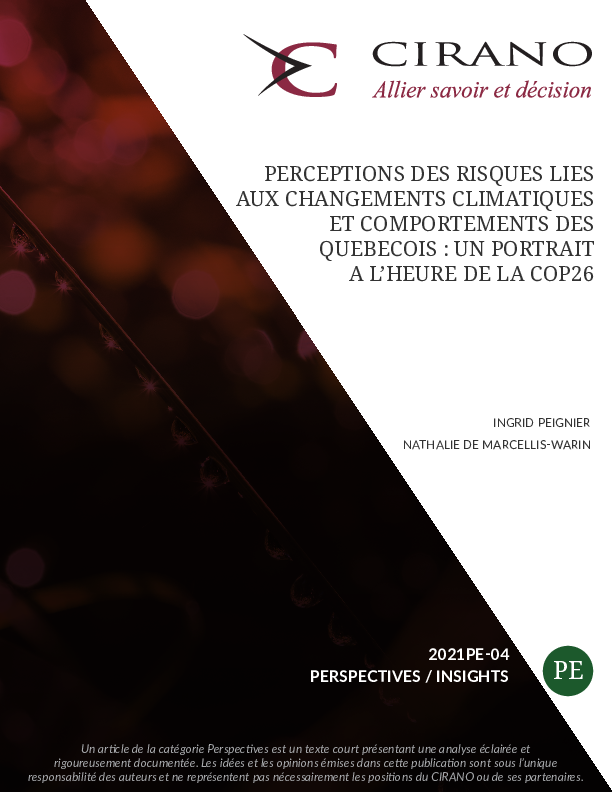Perceptions des risques liés aux changements climatiques et comportements des Québécois : un portrait à l’heure de la COP26
On November 1, 2021, the 26th United Nations Climate Change Conference (COP26) opened in Glasgow. In this context, by analyzing data from the CIRANO 2021 Barometer on Quebecers' perceptions of risks, and more specifically questions on climate change, we provide important elements for the implementation of public policies on prevention, and in particular to encourage behavioral change. The data presented allow us to better understand the Québécois perceptions with regard to climate change, their concerns and to have a portrait of their behaviours, whether we are talking about investment behaviours, transportation behaviours or behaviours with regard to a system of taxation on polluting emissions. The results show a general awareness of climate change:
- More Québécois perceive high risks for the climate change issue (69% in 2021 vs. 53% in 2018).
- Fewer Québécois are climate skeptics (17% in 2021 versus 22% in 2018 and 25% in 2015).
- The level of trust in governments to manage climate change issues is low and has remained virtually unchanged since 2018.
Québécois consider that it is mostly industries that have an impact on climate change. Although there is a willingness to change, especially when it comes to sustainable mobility, real behavioural changes are slow to come. We see that those who are climate skeptics tend to be less proactive in changing their behaviour. In this context, there is a need to inform and educate the population about climate change, its causes and effects, as well as the actions that can be taken, even on an individual scale, to prevent it. The implementation of taxes, whether on vehicles, waste recovery, water or road tolls, would seem to change the behaviour of more than half of Québécois (almost 70% for vehicles and waste).




